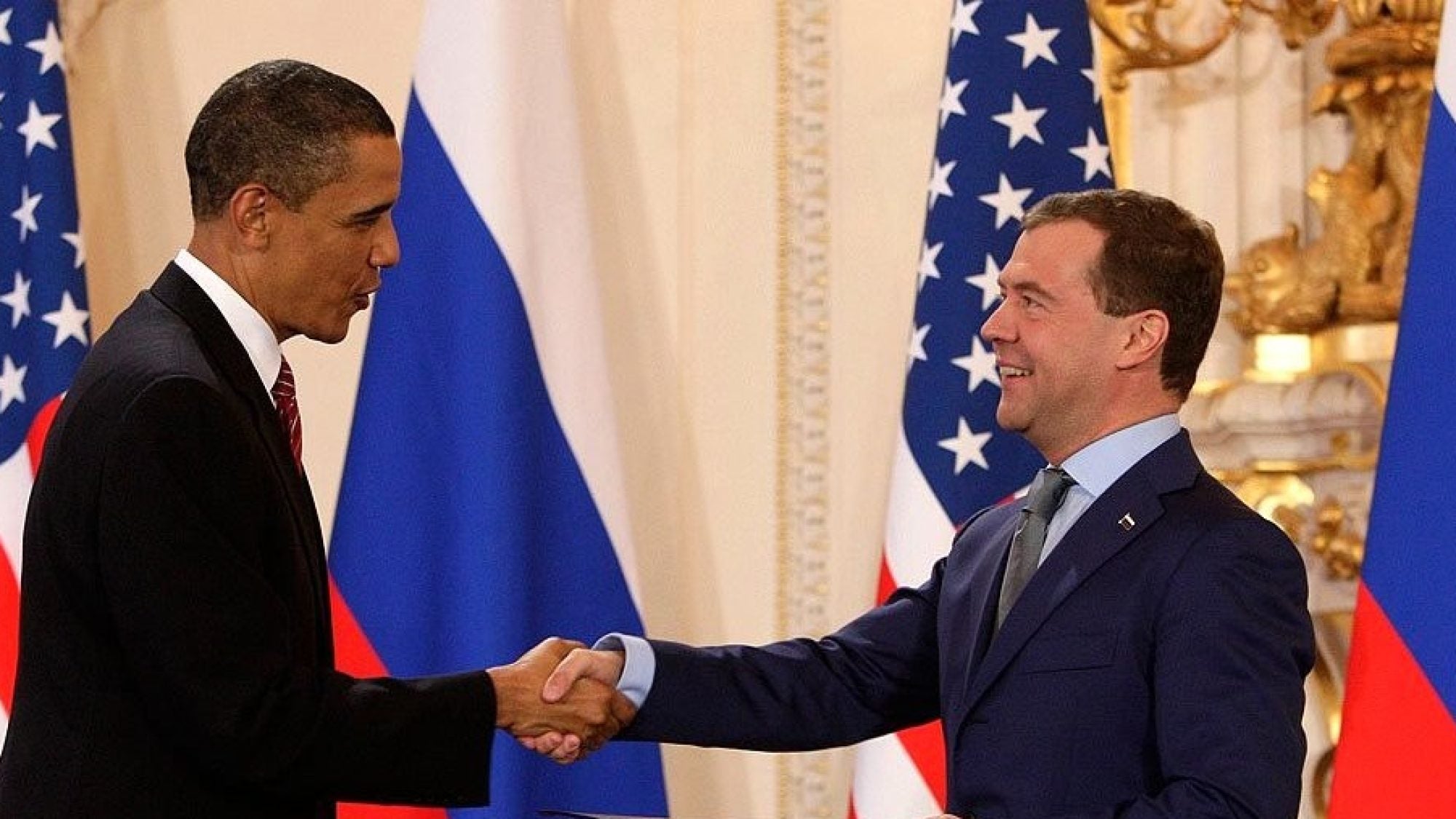Critics of New START would have you believe that these cuts are unnecessary at best, and dangerous to U.S. national security at worst. They also point out that New START does not limit the number of tactical nuclear weapons (short-range weapons intended for battlefield use) or the total number of weapons each country may stockpile, that it compromises U.S. missile defense initiatives, and that it will maintain the notorious “missile gap” that we have been taught to fear since the Cold War. These critiques, along with a few more nuanced ones all seem to be related to one principle that Governor Mitt Romney stated so succinctly: “America gives and Russia gets.”
Is New START really so detrimental to our national defense? Former Secretary of Defense Robert Gates doesn’t seem to think so, as he argued in the Wall Street Journal shortly after New START was signed:
“The U.S. is far better off with this treaty than without it. It strengthens the security of the U.S. and our allies and promotes strategic stability between the world’s two major nuclear powers.”
Though Gates was a Republican Secretary of Defense in a Democratic administration, it is certainly possible that he is not an objective source. In addition to Gates, however, sixteen former Secretaries of State, Defense, and National Security Advisors from both major political parties have thrown their support behind New START. Furthermore, at the time of its negotiation and signing, New START enjoyed the unanimous support of the most senior U.S. military commanders, including all of the Joint Chiefs of Staff, as well as the commander of the U.S. Strategic Command (the organization responsible for the U.S. strategic arsenal).
Even for the most hawkish, New START shouldn’t seem like such a bad deal. As former Secretary Gates points out, the treaty preserves the “vital pillar” of our nuclear deterrent—the “triad” of ICBMs, SLBMs and bombers—while adding greater flexibility to change the force mix of the triad, a provision previously not allowed by the old START treaty. Furthermore, the treaty does not prevent policymakers from modernizing the U.S. arsenal, which the Obama Administration has submitted plans to do, or from maintaining a robust missile defense system.
In a world where the United States is $16 trillion in debt and rising, it is clearly a win-win that our greatest adversary, in terms of nuclear capability, is requesting a reduction in nuclear forces at a time when our overkill nuclear arsenal will cost us $620 billion over the next decade.
Russia may have gotten a better deal. Perhaps we got the better deal. That isn’t the point. We are no longer competing with Russia in a zero-sum game. When the world’s two biggest nuclear powers sign an agreement to limit their nuclear capabilities, one party doesn’t win while the other one loses—everyone in the world, wins.
Thus, the chief national security benefit of New START isn’t in the prevention of a nuclear war between Russia and the United States. New START isn’t going to do that much more effectively than any other arms control treaty would have. Rather, its chief benefit lies in strengthening the global nuclear arms control regime.
The bottom line is that New START signals to the world that the two largest nuclear powers are serious about arms control. Arms control has always been about building trust, but today we seek to build that trust beyond our traditional adversary.
That is the point.
Warren Ryan is a graduate student at Georgetown University’s Edmund A. Walsh School of Foreign Service, where he is focusing on International Security & Conflict Management. Mr. Ryan has previously served with the U.S. Agency for International Development (USAID) in Khartoum, Sudan and as a management consultant at Deloitte Consulting’s Federal Practice in Washington, D.C.
Image Credit: Kremlin.ru, Wikimedia Commons
This is an archived article. While every effort is made to conserve hyperlinks and information, GJIA’s archived content sources online content between 2011 – 2019 which may no longer be accessible or correct.

